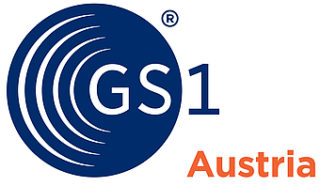EDI in trade logistics

EDI in trade logistics: boost efficiency and reduce costs
The interaction between various suppliers and the enormous volume of data that needs to be processed daily pose substantial challenges for trade logistics. Electronic Data Interchange (EDI) ensures that the data contained in orders, dispatch advices, and invoices can be processed as efficiently as possible. In this article, EDITEL expert Richard Frey explains the cost savings that can be achieved through the use of EDI, at what point an integrated EDI solution is economically viable, and how the use of new technologies like AI can further enhance efficiency in trade logistics.
What challenges does trade logistics face today?
The greatest challenges include the vast amounts of data that need to be processed daily and the coordination with many different actors – namely suppliers. To give you some numbers: According to Statistics Austria, there are more than 4,100 food producers in Austria alone. A typical supermarket lists an average of almost 12,000 products, with discount retailers listing fewer and full-range retailers significantly more. Even if a supermarket is supplied by only a fraction of these mentioned suppliers, there is an enormous workload of data that needs to be processed. Additionally, during peak times – such as Easter or Christmas – the unpredictable quantities of goods that retailers actually need can be challenging. To prevent shortages of goods in stores, the producer or logistics company must know as soon as possible when an item is running low in a store. This is only possible through the collaboration of business partners and the exchange of information in real time.
What role does EDI play in processing these data?
EDI as a tool makes sure that this interaction works smoothly. In general, trading companies and manufacturers exchange logistics messages electronically via EDI. This offers immense benefits, such as the supplier being able to respond to the order (ORDERS) immediately. Also, the electronic processing of dispatch advices (DESADV) plays a significant role in this process: it is only through this message that precise planning and execution of goods receipt can be guaranteed. EDI reduces administrative effort, as the data exchange is automated and integration into upstream systems such as merchandise management or ERP (Enterprise Resource Planning) occurs without any system inconsistencies. The error rate is reduced, processes are simplified and standardized. Possible manual inputs are reduced to a necessary minimum. All this accelerates processes and ultimately increases efficiency.
Our core business at EDITEL is to automate the exchange of data, including data from orders (ORDERS), dispatch advices (DESADV), and invoices (INVOIC), and to set up the required processes. Over the years, we have developed a comprehensive understanding of these processes through collaboration with numerous well-known companies in manufacturing and trade and have built a high level of solution-oriented expertise.
What current developments could contribute to further improving logistics processes or capacity planning in the future?
The digital exchange of data between suppliers and retailers already makes it common practice for the ERP system to sound the alarm when an item is about to run out. Tools based on artificial intelligence will contribute even more to improving quantity finding in advance in the future. Especially in the previously mentioned peak times, when the required quantity of goods is extremely difficult to estimate, AI could significantly improve the forecasts.
What are the greatest advantages of fully integrated processes in a trading company’s supply chain?
Automating the processes increases efficiency along the entire value chain. An EDI-supported supply chain operates without manual interventions, eliminating potential sources of error. Seamless integration enables smooth collaboration and improves communication between involved business partners. Also, companies that want to implement EDI must examine their processes in advance to ensure they have clean master data, which eliminates further potential sources of error and ultimately increases customer satisfaction.
How can EDI contribute to reducing costs in the supply chain?
The potential cost savings primarily focus on process costs. Take, for example, the delivery of 32 pallets of beverages: a manual recording of the goods received would take five to ten minutes. Thanks to EDI, most of this time is saved, and the goods receipt takes less than 2 minutes. This might not seem like much, but with 200 to 300 goods received, this results in a time saving of up to 600 minutes. If you scale this up to 1,000 stores, that’s 600,000 minutes or 10,000 hours of saved time. 10,000 hours that employees can dedicate to assisting customers at the point of sale instead of “wasting” their time recording goods received.
What about transparency and thus traceability of data?
Insight into the supply chain is becoming increasingly important due to current legal requirements (just think Supply Chain Act and Deforestation Directive). In addition, consumers are increasingly interested in the origin of their products.
This means that information about the products must be available along the entire supply chain or be provided with it. This traceability is guaranteed through collaboration with our parent company GS1 Austria, which offers different solutions depending on a company’s needs.
From what company size does an integrated EDI solution pay off?
Companies with a lower volume of orders can easily and cost-effectively be connected via our Web EDI solution, which only requires Internet access. An integrated solution pays off especially with a regular business relationship and a larger volume of orders, but it presupposes that the company has an ERP or merchandise management system into which the EDI solution can be integrated.
If you would like to know how your company can optimize its supply chain through Electronic Data Interchange (EDI), my colleagues and I will be happy to answer your questions. Please use the contact box on the right to send us a message.
About the author
Richard Frey
Business Development Manager at EDITEL Austria
About EDITEL

EDITEL, an EDI service provider, is an internationally leading provider of EDI solutions (EDI = Electronic Data Interchange). The company specializes in the optimization of supply chain processes for companies of all sizes and in all industries.
Portrait photo copyright EDITEL
Symbol photo copyright iStockphoto, Photo credits greenbutterfly




